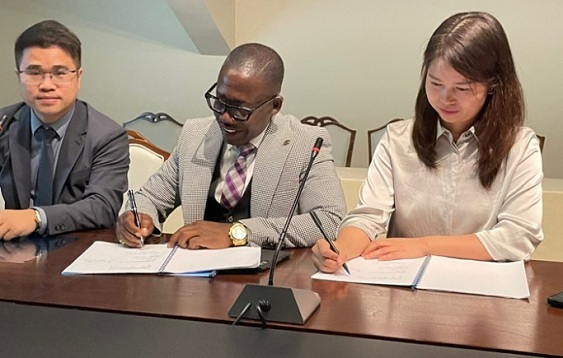PKA Export and Import, a Ghanaian company, has signed a memorandum of understanding with Chinese firms Polyrocks and Sinovcle to establish an electric vehicle assembly plant in Ghana.
The agreement was signed on Wednesday [August 20, 2025] in Accra.
It is supposed to lead to the creation of a joint venture between PKA and the Chinese partners to assemble electric vehicles for the Ghanaian and West African markets.
The Executive Chairman of PKA, Prince Asare, at the signing of the MoU said the project had been under negotiation for more than two years and was expected to change the face of Ghana’s automobile industry.
Mr. Asare said the construction of the plant was scheduled to begin before the end of 2025, with production targets of 5,000 vehicles annually in the first year, increasing to 20,000 units in subsequent years.

He said they were hoping to generate more than 1,000 direct jobs and over 2,000 indirect jobs while introducing new electric vehicle technology in the West African region.
He explained that the initiative will include training programmes for managers, technicians, and mechanics, with plans to license specialised electric vehicle repairers across Ghana.
The project will also involve the establishment of charging stations and service centres, opening up opportunities for private investment in the electric vehicle charging sector.
Mr. Asare said Ghana was selected ahead of other African countries after he presented Ghana’s investment climate and peaceful environment to the Chinese firms.
He added that the project was in line with the government’s automobile development policy and would help boost foreign exchange earnings through exports.
The Chairman of Sinovcle, Mr Zou Pinchun, said Ghana was chosen for the company’s first African factory because of its fast-growing economy and promising automobile market.

He said the company hoped to contribute to improving local livelihoods while advancing green energy solutions.
General Manager of Polyrocks, Ms Guo Ping, said the venture will not only assemble electric vehicles but also introduce new technologies, including solar-powered and hydrogen-powered cars.
She added that the company intends to establish training schools, charging stations, and service centres to provide technical skills and long-term support for the industry.

The partners expressed confidence that Ghana could in future export electric vehicles to other markets, as part of efforts to position the country as a strong player in Africa’s green automobile industry.





